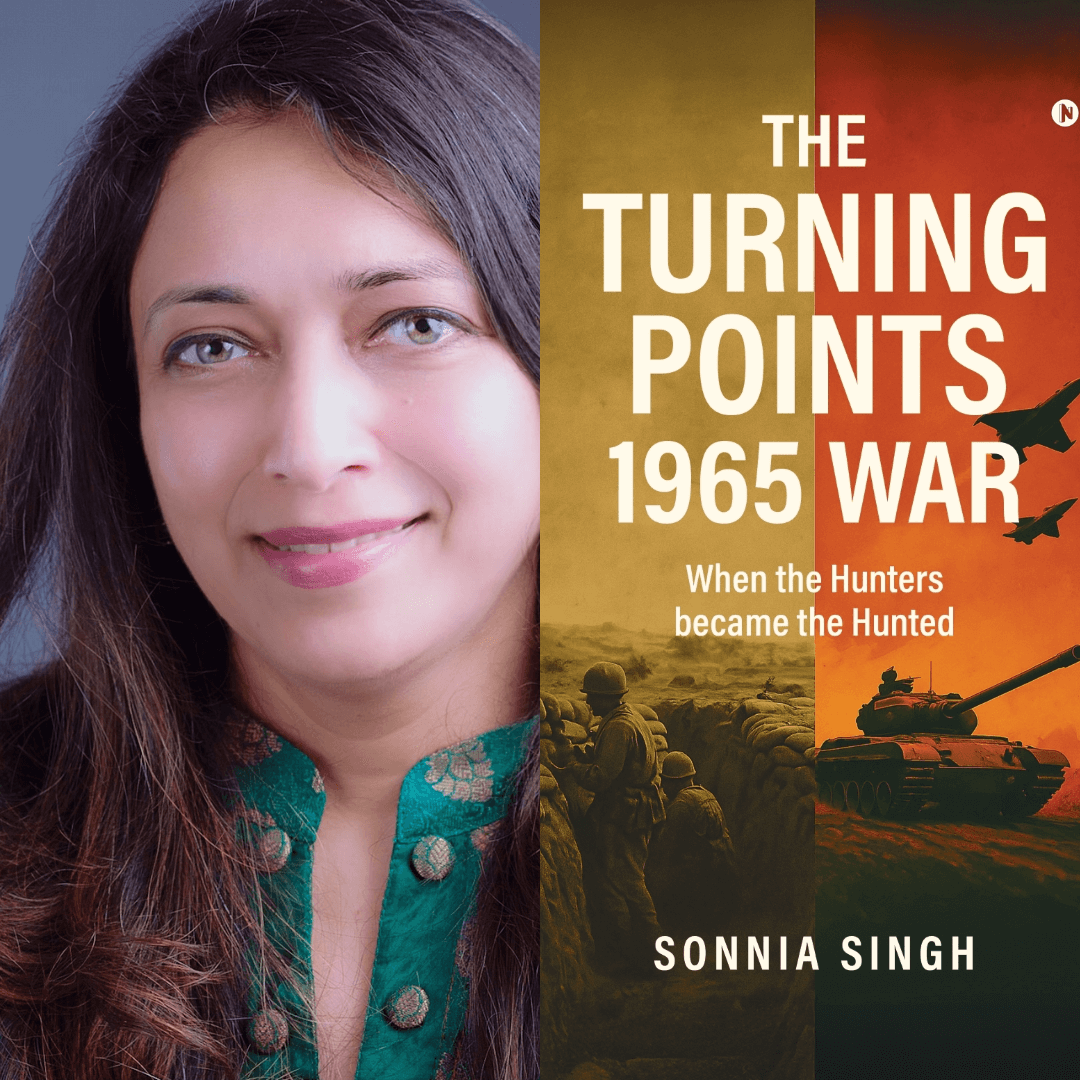The 1965 India–Pakistan War is often remembered in brief lines of textbooks, a conflict that ended in a ceasefire with no clear victor. In The Turning Points: 1965 War, author Sonnia Singh brings to life the untold depth behind those lines, revealing that this was far more than a border skirmish. It was a defining moment in India’s post-independence history. Through meticulous research and vivid storytelling, the book transforms what many see as a forgotten war into a living narrative of resilience, leadership, and transformation.
At its heart, this book is about the moments that could have changed everything, when India stood at a crossroads and the courage of individuals reshaped the destiny of a nation. Sonnia Singh takes readers through the key turning points of the war, showing how a young republic, initially on the defensive, evolved into a powerful force that pushed back against the odds. Each chapter captures the pulse of those decisive days, revealing the grit of soldiers, the nerve of commanders, and the strategy that turned apparent defeat into triumph.
From the salt deserts of the Rann of Kutch to the icy passes of Pir Panjal, the 1965 conflict spanned a remarkable range of battlefronts. Yet Singh’s storytelling ensures that geography never overshadows humanity. In stories like Good Morning Sargodha and Champions of the Cerulean Skies, the valor of the Indian Air Force soars high, transforming the skies into arenas of courage and precision. In The Conqueror of Haji Pir and The Battle of Assal Uttar, readers witness the ground realities where leadership and quick thinking determined survival. Each narrative is a mosaic piece of a larger truth: wars are not only fought with weapons but also with willpower, strategy, and unity.
What makes The Turning Points: 1965 War stand apart is its balanced honesty. Singh does not shy away from examining the darker shades of wartime decision-making, the internal divisions, missed opportunities, and strategic oversights that nearly cost India dearly. Yet she also highlights the brilliance of military minds who rose above politics and uncertainty. Figures such as Lt. Gen. Harbaksh Singh and Air Chief Arjan Singh emerge as more than military leaders; they become symbols of clarity and conviction at a time when the nation’s morale wavered.
The book’s origin is as compelling as its content. It began with a simple moment, a visit to the Ahmednagar Tank Museum and a father’s correction that set the author on a quest to uncover the truth behind the machines of war and the men who operated them. What followed was two years of painstaking research, interviews, and archival exploration. This personal spark lends the book a sense of intimacy. It is not written as a distant chronicle but as a heartfelt mission to preserve stories that live in the memories of veterans and their families.
Though history records the 1965 War as inconclusive, Singh presents a compelling argument that India’s moral and strategic victory was undeniable. The decision to halt Indian forces just thirteen kilometers from Lahore was not a sign of weakness but of restraint, a conscious choice that reflected India’s strength of principle. In reframing the war this way, the book challenges long-held perceptions and restores dignity to those who fought, commanded, and sacrificed.
As India approaches the sixtieth anniversary of that critical year, The Turning Points: 1965 War stands as both a historical document and a call to remembrance. It invites readers to look beyond the numbers and maps to see the war through the eyes of those who lived it. Sonnia Singh’s work is a tribute not only to victory but to valor, strategy, and the enduring spirit of a nation learning to define itself through challenge.
This is not just a book for military enthusiasts. It is for every Indian who believes that the past holds lessons for the present. The Turning Points: 1965 War reminds us that history is not made in grand declarations but in the courage of ordinary men and women who turn the tide when everything seems lost.

